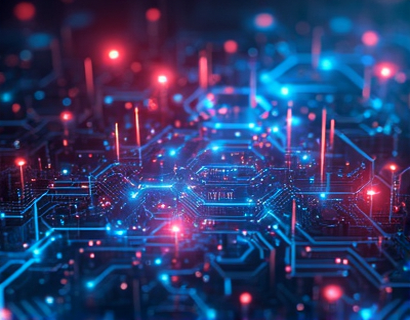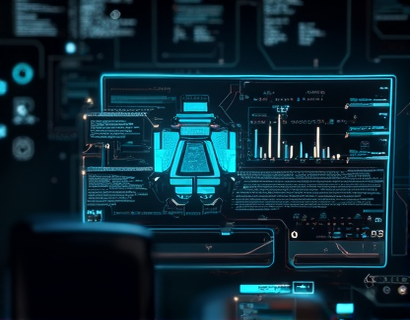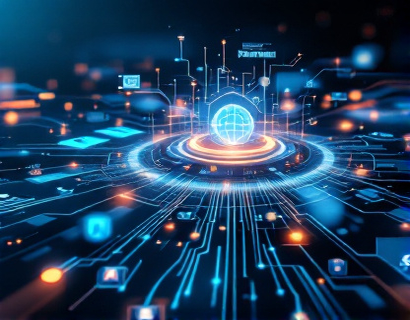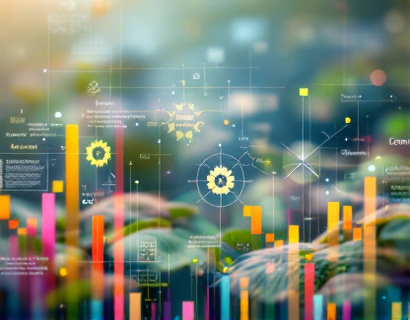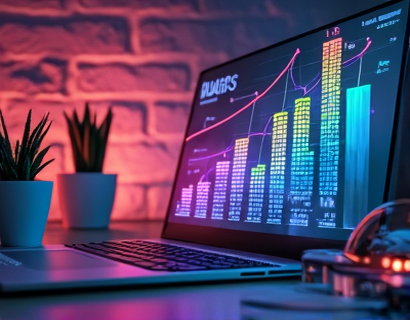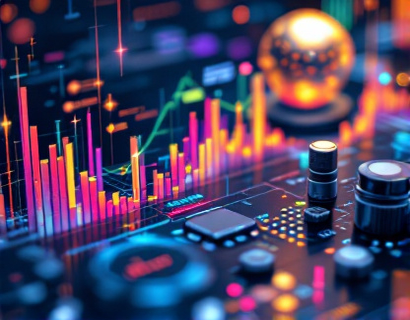Crypto-Driven AI: Transforming Digital Productivity with Next-Gen App Solutions
The intersection of artificial intelligence (AI) and cryptocurrency is giving rise to a new era of digital productivity, powered by innovative app solutions. This fusion is not just a technological curiosity but a transformative force that is redefining how we approach work, collaboration, and daily tasks. For tech innovators and early adopters, this convergence offers unprecedented opportunities to enhance efficiency, security, and accessibility. This article delves into the intricacies of how AI and cryptocurrency are merging to create next-generation applications that are set to revolutionize the digital landscape.
Understanding the Synergy Between AI and Cryptocurrency
The synergy between AI and cryptocurrency is rooted in their shared foundation of decentralization and transparency. AI, with its ability to process vast amounts of data and learn from patterns, combined with the secure and transparent nature of blockchain technology, creates a powerful toolkit for developing advanced applications. Cryptocurrency, particularly through blockchain, provides a decentralized and immutable ledger that ensures data integrity and security, which is crucial for AI applications that handle sensitive information.
Enhanced Security through Blockchain
One of the most significant benefits of integrating AI with cryptocurrency is the enhanced security it offers. Blockchain technology ensures that data is tamper-proof and transparent, reducing the risk of fraud and data breaches. For AI applications that manage critical business data or personal information, this level of security is invaluable. Smart contracts, a key feature of blockchain, can automate and enforce contractual obligations without the need for intermediaries, further enhancing the security and reliability of AI-driven solutions.
Decentralized Data Processing
AI applications often require access to large datasets to function effectively. Traditional centralized data storage and processing methods can be bottlenecks, prone to single points of failure and security risks. By leveraging blockchain, AI applications can utilize decentralized data storage solutions, such as InterPlanetary File System (IPFS), which distribute data across a network of nodes. This not only improves data availability and resilience but also ensures that data is processed in a decentralized manner, aligning with the principles of blockchain technology.
Tokenization of Digital Assets
Tokenization, the process of converting assets into digital tokens on a blockchain, is another area where AI and cryptocurrency intersect to enhance digital productivity. In the context of AI applications, tokenization can represent various forms of digital assets, such as data, computing power, or even time. For instance, a platform could tokenize user-generated data, allowing users to monetize their data while ensuring they retain control over its usage. This not only incentivizes data contribution but also creates a more equitable and transparent ecosystem.
Smart AI Agents and Decentralized Autonomous Organizations (DAOs)
AI-driven smart agents, powered by blockchain, are transforming the way tasks are managed and executed. These agents can automate complex workflows, make decisions based on real-time data, and interact with other smart agents or human users. When integrated with DAOs, which are self-governing organizations run by smart contracts, these smart agents can operate in a fully decentralized and autonomous manner. This combination allows for the creation of dynamic, adaptive systems that can optimize workflows and enhance productivity without the need for centralized control.
Personalized User Experiences
AI algorithms can analyze vast amounts of user data to provide personalized experiences, but the integration of blockchain ensures that this data is handled securely and transparently. Users can have greater control over their data, choosing what information to share and with whom. This not only enhances user trust but also leads to more accurate and relevant AI-driven recommendations and services. For example, a productivity app could use AI to analyze a user's work patterns and suggest optimized schedules, all while ensuring that the user's data is stored and processed on a decentralized network.
Supply Chain Optimization
In the realm of supply chain management, the combination of AI and cryptocurrency can lead to significant improvements in efficiency and transparency. AI can predict demand, optimize inventory levels, and detect anomalies in real-time, while blockchain ensures that all transactions and movements are recorded and verifiable. This dual approach can reduce costs, minimize waste, and enhance the overall reliability of supply chains. For businesses, this means more predictable operations and better customer satisfaction.
Financial Inclusion and Microtransactions
The integration of AI and cryptocurrency is also transforming financial systems, particularly in the areas of inclusion and microtransactions. AI can analyze financial data to identify patterns and risks, enabling more accurate credit scoring and fraud detection. Cryptocurrency, with its low transaction fees and global reach, facilitates microtransactions that were previously impractical with traditional financial systems. This combination can empower individuals and small businesses in underserved regions, providing them with the tools to participate in the global economy.
Challenges and Considerations
While the potential of crypto-driven AI is vast, there are several challenges and considerations that must be addressed. Scalability remains a significant issue, as blockchain networks can struggle with high transaction volumes. Solutions like layer 2 protocols and sharding are being developed to address this. Additionally, the regulatory landscape for cryptocurrency is still evolving, and compliance is crucial for any application that involves financial transactions. Ensuring user privacy and data protection is also paramount, as the combination of AI and cryptocurrency handles sensitive information.
Future Outlook
The future of digital productivity through crypto-driven AI is promising, with ongoing advancements in both AI and blockchain technology. As these fields continue to mature, we can expect more sophisticated and seamless integrations that further enhance user experiences and operational efficiency. The development of more user-friendly interfaces, improved interoperability between different blockchain platforms, and the emergence of new use cases will continue to drive innovation. For tech innovators and early adopters, embracing this fusion of AI and cryptocurrency can lead to groundbreaking solutions that redefine the digital landscape.
In conclusion, the convergence of AI and cryptocurrency is not just a technological trend but a transformative movement that is reshaping the way we approach digital productivity. By leveraging the strengths of both technologies, we can create next-generation app solutions that are secure, efficient, and user-centric. As we move forward, the potential for innovation and growth in this space is immense, offering exciting opportunities for those who are willing to explore and embrace the future.




